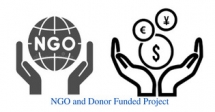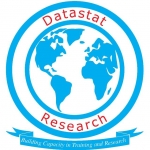|
|
Training Course on Resilience in Food Security Analysis
USD 1,000 |
Venue: Nairobi, Kenya
Rural poor heavily rely on their local environments to provide basic necessities like water, food and energy. Thus, these vital resources provide the backbone of many rural livelihoods and their stability is key to securing the wellbeing of their entire communities. Food insecurity interrupts market access, trade and food supply, reduces income, deplete savings and erode livelihoods. Economic crises such as soaring food prices reduce real income, force the poor to sell their assets, decrease food consumption, and reduce their dietary diversity and access to safe and quality food. Disasters create poverty traps that increase the prevalence of food insecurity and malnutrition.
This course will equip you with knowledge on protecting people’s livelihoods from shocks, and strengthening their capacity to absorb the impact of, and recover from, disruptive events. It is a necessary ingredient for food and nutrition security. The course is also in line with the first millennium goal on eradication of extreme poverty and hunger.
Duration: 5 days
Who Should Attend?
This course targets various actors in the National governments, UN partners and NGOs, Agriculture Extension (Agricultural extension officers, senior agricultural officials and policy makers) working with communities, in governments, funding agencies, Research organizations and non-government organizations among others for Agriculture support activities and other Development programmes.
Course Objectives
By the end of the course, learners will be able to:
· Understand various terms in food security and risk reduction
· Gain knowledge on application of various approaches to Food Security interventions
· Understand the various methods in Food Security analysis and tools and be able apply
· Use of GIS and remote sensing in food security analysis
· Monitoring and Evaluation in Food Security Programming
· Improve agricultural infrastructure and agricultural practices
Course content
· Basic concepts of food security
· Causes of food insecurity
· Food system resilience and indicators
· Preparation and planning of targeted interventions
· Community food security assessment tool kit
· Gender integration in food security programming
· Monitoring and evaluation in food security programming
· Supporting resilience at multiple levels
Methodology
The instructor led trainings are delivered using a blended learning approach and comprises of presentations, guided sessions of practical exercise, web-based tutorials and group work. Our facilitators are seasoned industry experts with years of experience, working as professional and trainers in these fields.
Key Notes
i. The participant must be conversant with English.
ii. Upon completion of training the participant will be issued with an Authorized Training Certificate
iii. Course duration is flexible and the contents can be modified to fit any number of days.
iv. The course fee includes facilitation training materials, 2 coffee breaks, buffet lunch and A Certificate upon successful completion of Training.
v. One-year post-training support Consultation and Coaching provided after the course.
vi. Payment should be done at least a week before commence of the training, to DATASTAT CONSULTANCY LTD account, as indicated in the invoice so as to enable us prepare better for you.
| Nairobi, Kenya | Nov 25 - 29 Nov, 2024 |
| USD 1,000.00 | |
Sammy Gathuru 0724527104
Related Courses
 Training Course on International Protocol and Diplomacy
Training Course on International Protocol and Diplomacy
5 days, 06 - 10 Jan, 2025
Datastat Research Center
 Training Course on Grant Management using Infor Sun Accounting System
Training Course on Grant Management using Infor Sun Accounting System
12 days, 06 - 17 Jan, 2025
Datastat Research Center
 Training Course on M&E, Data Management and Analysis for in Food Security and Nutrition Programmes
Training Course on M&E, Data Management and Analysis for in Food Security and Nutrition Programmes
5 days, 06 - 10 Jan, 2025
Datastat Research Center




